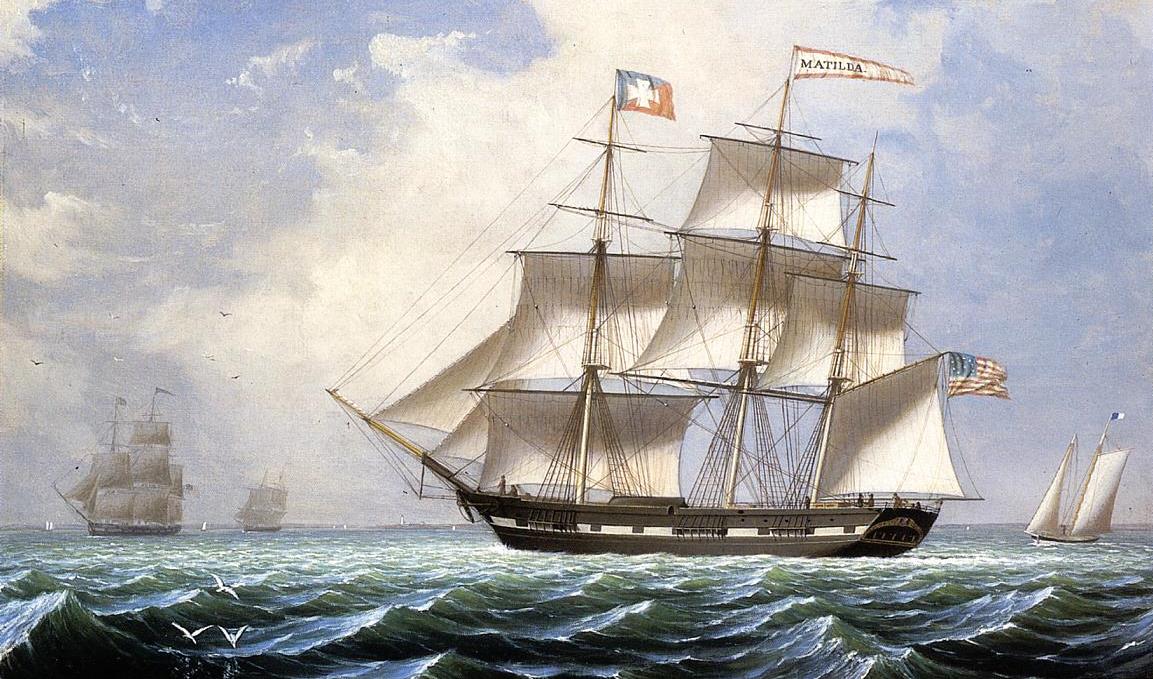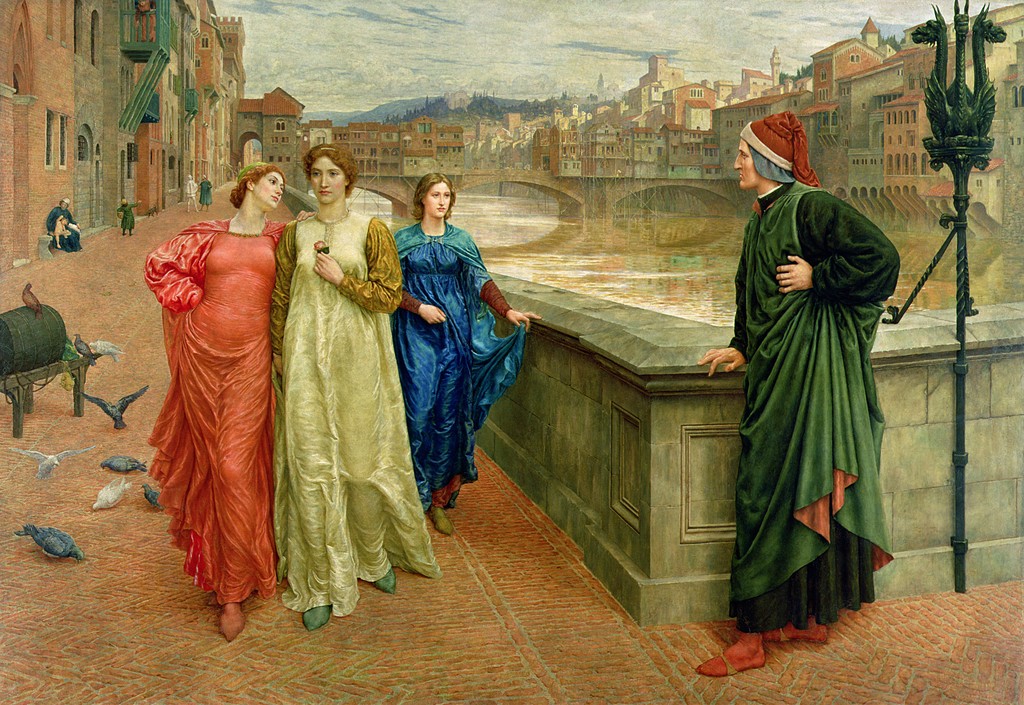27 November 1976: Fort Eustis, Virginia
By Usa W. Celebride
It is an autumn Saturday. I sit amidst the scree,
of dry, brown, crackly leaves, against the rough bark of a tree.
The Sun casts out long shadows. It’s a time of purity,
of rest, of realism, grandeur and simplicity.
I am content, relaxed, austere, as is the air around
me here; the fine imagical lines of my mind abound.
It is the 27th of November. Sunlight warms;
America’s centennial here in Virginia’s arms.
I think of Washington, so far away in space and time,
glad I’m alive this momentary lapse of the sublime.
Another Spring
By Bud “Weasel” Rice
What! Zephurus is here. Another Spring has come so fast.
It’s breaking winter’s pictures up, like an iconoclast.
The West Wind blasts. Harsh March proceeds to charge its enemies,
while April’s showers bring May flowers, and ice-white frost recedes.
The force of warmth suffuses now the plants and tender crops.
The Constellation Taurus alters Aries vernal props.
The scraggly, grayish mourning doves are cooing in the trees,
while red and purple rhododendrons jostle in the breeze.
The robins search for worms and bugs; the crows seek life’s dead spoils;
and Nature paints in shining light, bright green and pink-gold oils.
On the 500th Anniversary of Martin Luther’s Theses
By Uwe Carl Diebes
Composer, priest, and monk, professor of theology,
he, Martin Luther, changed the ways of Christianity,
with theses numbered ninety-five, in 1517,
he argued that salvation’s not to be won by good deeds.
He thought it was one’s faith and God’s own grace that saved the soul,
and taught the Bible was divine, the Truth’s magnetic pole.
He brought forth standard German through his vulgate rendering,
translating Bible words through his linguistic centering.
He wrought strong hymns, for singing in the Protestant New Church,
and married Katharina, showing love does not besmirch.
Covfefe
By Caud Sewer Bile
Despite the constant negative covfefe of the Press,
the Press-ident continues in his tweeting-speed-express.
He throws confetti to the maelstrom surrounding US,
and messages, like bits of m-y-l-a-r, trip-ple bounteous.
The Donald doesn’t like the coverage the Press gives him.
“No matter what they do to me, I will stand up to them.”
The mad kerfuffle sends the social media abuzz,
a coughing fit guffawing over one who is all thumbs.
At midnight when the spell goes off, and t-wits go on the fritz,
and the effects of c-o-f-f-e-e dissipate—covfefe hits.
Bruce Dale Wise is a poet living in Washington State.
















“this momentary lapse of the sublime” is a wonderful expression – like it very much
I think your poetry is wonderful. There is so much natural romantic reflection contained and this is allied to a very appreciative sense of observation. Thank you.
“He thought it was one’s faith and God’s own grace that saved the soul,
and taught the Bible was divine, the Truth’s magnetic pole.”
Love it, Bruce! A tribute to one of my favorite historical figures! 🙂
I can’t sing his “Ein feste Burg ist unser Gott” (A Mighty Fortress is our God) without being moved by the sweeping panorama of the cosmic struggle between Good and evil–and the interposition of “the Man of God’s own choosing . . Christ Jesus.” Thank you for this encomium to a truly remarkable and pivotal figure in the history of the Church.
I am always surprised at which of the poems I send Mr. Mantyk that he publishes. Poems that I have completely forgotten about pop up, and I am reminded where once I was, even if only one or two months ago.
In the first poem, Mr. Sale, when I was in the US Army, I remember sitting against a tree on a warm autumn day and writing the poem, which was back then in free verse. But as I’m starting to throw out a lot of my older poetry, literally hundreds of poems, I thought to take that particular poem and rewrite it in a tennos. It is unlike most of my poetry of the present century in that it is in first person. It also reminds me that back then I was frequently coining neologisms, like imagical, which I had to include, yet makes the most awkward couplet of the poem. What is interesting about your comment is that the actual words of the original poem take up 90% of the tennos, and that last line, the one you noted, is a modern metapoetical comment on the poem, the attitudes conveyed, the situation, and the distance in space and time.
Mr. Hollywood, if you really are interested in reading my poetry [though historically nobody really has been interested], check in at the leftist, free verse site of Oddball Magazine under Wise Words.
Luther’s translation of the Hebrew and Greek Bible into German, and his three dozen hymns, make him the most important figure in Early New High German literature , which Wilhelm Scherer has dated as the period 1350-1650. What strikes me most about Luther’s lyrics in “Ein feste Burg ist unser Gott” is their solidity, which Frederick H. Hedge (1805-1890) neatly captured in his inspiring translation.
Ein feste Burg ist unser Gott,
Ein gute Wehr und Waffen;
Er hilft uns frei aus aller Not,
Die uns jetzt hat betroffen.
Der alt böse Feind,
Mit Ernst er’s jetzt meint,
Gross Macht und viel List
Sein grausam Rüstung ist,
Auf Erd’ ist night seingleichen.
Mit unsrer Macht ist nights getan,
Wir sind gar bald verloren;
Es streit’ für uns der rechte Mann,
Den Gott hat selbst erkoren,
Fragst du, wer der ist?
Er heisst Jesus Christ,
Der Herr Zeboath,
Und ist kein andrer Gott,
Das Feld muss er behalten.
Und wenn die Welt voll Teufel wär
Und wollt uns gar verschlingen,
So fürchten wir uns night so sehr,
Es soll uns doch gelingen,
Der Fürst dieser Welt,
Wie sau’r er sich stellt,
Tut er uns doch nicht;
Das macht, er ist gericht’;
Ein Wortlein kann ihn fällen.
Das Wort sie sollen lassen stahn
Und kein’ Dank dazu haben;
Er ist bei uns wohl auf dem PLan
Mit seinem Geist und Gaben.
Nehmen sie den Leib,
Git, Ehr, Kind, und Weib;
Lass fahren dahin,
Sie haben’s kein’ Gewinn,
Das Reich muss uns doch bleiben.
A mighty fortress is our God,
A bulwark never failing;
Our helper He, amid the flood
Of mortal ills prevailing.
For still our ancient foe
Doth seek to work us woe;
His craft and pow’r are great,
And, armed with cruel hate,
On earth is not his equal.
Did we in our own strength confide,
Our striving would be losing;
Were not the right man on our side,
The Man of God’s own choosing.
Dost ask who that may be?
Christ Jesus, it is He;
Lord Sabaoth, His name,
From age to age the same,
And He must win the battle.
And tho’ this world, with devils filled,
Should threaten to undo us,
We will not fear, for God hath willed
His truth to triumph thro’ us.
The Prince of Darkness grim—
We tremble not for him;
His rage we can endure,
For lo, his doom is sure,
One little word shall fell him.
That word above all earthly pow’rs,
No thanks to them, abideth;
The Spirit and the gifts are ours
Thro’ Him who with us sideth.
Let goods and kindred go,
This mortal life also;
The body they may kill:
God’s truth abideth still,
His kingdom is forever.
Ms. Foreman, I, too, am profoundly moved when I sing “Ein feste Burg ist inser Gott, even just typing the words. There is profound poetry in the hymns of the Christian Church, frequently overlooked in the analyses of poetry, which Thomas Aquinas defined as, “Hymnus est laus Dei cum cantico; canticum autem exultatio mentis de aeternis habita, prorumpens in vocem.”
One can see there is a treasure in the history of hymnody, to just barely scratch the surface, from plainchant songs, like “Veni, veni Emmanuel,” and the Old Irish Dallan Forgaill’s “Rop tú mo Baile” [Be Thou my Vision], to Joachim Neander’s “Lobe den Herren den mächtigen König der Ehren” [Praise to the Lord, the Almighty King of Creation], Isaac Watts “Joy to the World,” Robinson’s “Come Thou Font of Every Blessing,” John Newton’s “Amazing Grace,” Reginald Heber’s “Holy, Holy, Holy,” from the thousands of hymns of Charles Wesley, and hymns, like Horatio Spafford’s “It is Well With My Soul,” that makes me cry every time [I can’t help but thinking of him and his wife losing their four daughters on the ocean vessel Ville du Havre], to 20th century hymns, like Babcock’s “This Is My Father’s World,” Bennard’s “The Old Rugged Cross,”and All Creatures of Our God and King,” inspired by Saint Francis of Assisi’s “Canticle of the Sun” to New Millennial choruses, like “In Christ, Alone” by Getty and Townend.
When I look at the poem, this is what I see: comedy, with a twist. President Trump tweets; it’s part of our modern stage. He had started to write: “Despite the constant negative press covfefe…” and it mistakenly went out. Obviously, we all make mistakes, but people are closely watching him. The word he meant, I believe, was “coverage,” which pops up at line 5 in my poem. In line 2, I like the word “Pressident”; it carries several meanings, first, the office, second, the pun on pressing and denting, third, it links him to the Press in line one (and they really are linked at the hip!), and fourth, it is a homonym of precedent, which the new word is. I like the alliteration of “tweeting-speed-express,” which I think identifies his expressiveness. Though not a homonym, confetti in line 3, a metaphor of his tweets, is little more than small pieces of paper, mylar, or metallic material. US is both we and America. M-y-l-a-r is a Cummingsesque play with letters, as trip-ple means both triple and tripping. The central couplet is the condensed theme. The first half is an objective sentence, and the second half, is an interpretation of his visceral response. It is the line I like the best, for its simplicity, and its defiance. I think kerfuffle, another approximate homonym, actually captures the whole episode, much ado over very little; but isn’t that what lights up the media; it is more frequently that shallow than it ever, if ever, is profound. I thought line 8 was another apt metaphor, with the pun on “all thumbs.” I really liked the last couplet because there it is like Cinderella, when at midnight the magic goes away, and this tweet did take place after midnight. I enjoyed the pun on spell, the internal rhyme of “t-wits go on the fritz,” another metaphor, and the final dissipating of c-o-f-f-e-e, which when it dissolves (along with the “v” sound at of [which I almost spelled ov]) c-o-v-f-e-f-e hits. The last word has a nice Dickinson punch to it. The peripheral tags are fun, but they can, and have been, developed more fully, when one wants to add things in prose (or poetry), like Eliot did with his notes after The Wasteland.
“Another Spring” is interesting for me to read; for when I wrote it, I lived in Washington state—a world away from where I am now. Although the poem is in the throes of a tennos, Chaucer informs the poem. The background has been altered. I don’t see rhododendrons here in the Metroplex, nor am I as likely to see robins as clearly as I did back then. The language, too, Hopkinsesque, is strangely rich and lush, flush with alliteration, compared to all the tennos that I write now in this urban rush. Though I still enjoy internal rhyme, I played it slightly diff’rently back then. Even the winds and the stars differ. I did see crows this week; but they were outside an electric station along a busy street.